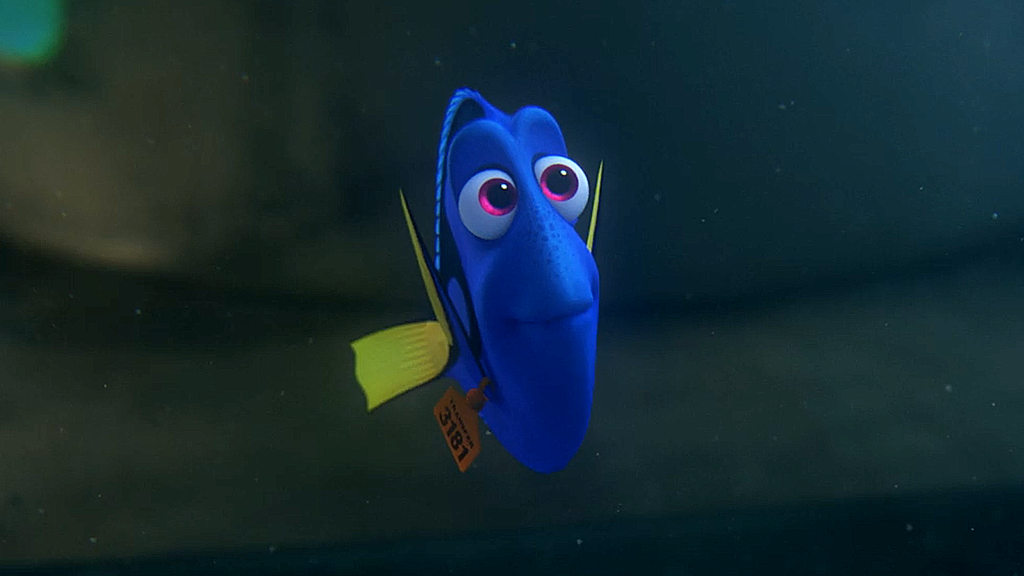First, a heresy: Finding Nemo is not my favorite Pixar movie. Not even close.
When I first discovered that everyone else in the world not only loved it, they considered it one of the best animated movies of all time, it was like someone had told me the ocean wasn’t wet.
I mean, yeah, it was okay, but I didn’t love it.
It wasn’t until I was watching Finding Dory with my family (with a very distracting daughter jumping around at my side), I finally figured out what it was that put me off the original Finding film. Suspension of disbelief.
It’s the fish. Mammals can have feelings. Reptiles are allowed emotional thought. Even arachnids can have human personification if it involves weaving webs to help pathetic pigs. But fish are, let’s be honest, really dumb.
Not only are fish really dumb, the ocean is really big. Unbelievably big. That a fish would not only care about their lost spawn, but be able to find him without the fishternet, just required a few too many switches to be flipped to get to the heart of the story.
So what does Finding Dory add to the formula of losing someone over an impossible distance? An impossible amount of time.
Not that I was sitting in the theater yelling at the screen about how “that could never happen,” because duh. I understand how this is supposed to work. But still, I couldn’t help thinking that they’re just frickin’ fish.
For the sane people out there who can get past the flippin’ fishy premise, how is the message? Really good. And a bit depressing. Finding Nemo addressed physical special needs. This one discussed mental ones. It hit, perhaps, a bit too close to home, when Dory’s parents were fretfully wondering if Dory would ever be able to make it on her own.
I’m glad that Finding Dory is addressing this topic. Having grown up with a brother with special needs, and now having a son with autism, big portions of my life have revolved around understanding and helping others who seem physically fine but have other issues to work through. I’m often surprised when I run into someone who has no understanding of that concept, who lives in a world of I’m Okay, You’re Okay, where if someone is different, it’s because either their parents or them did something wrong.
Finding Dory isn’t going to change that outlook for those who have it. It even might have gone a little too far in the wrong direction with Dory almost able to become a fully functioning member of fishdom. Still, I appreciate popular children’s movies bringing up these concepts, since it sets a layer of understanding that we can use to help our kids with those who are just a bit different.
For example, the next a kid at the park says something like, “What’s wrong with your son?” I can say, “Well, like Dory, he’s just a little bit different.”
What Finley Said About Finding Dory: “Dory is my favorite fish.”
What Kella Said About Finding Dory: “I liked the octopus. And my favorite part was [redacted for spoilers, since she picked the last plot point of the movie].”

